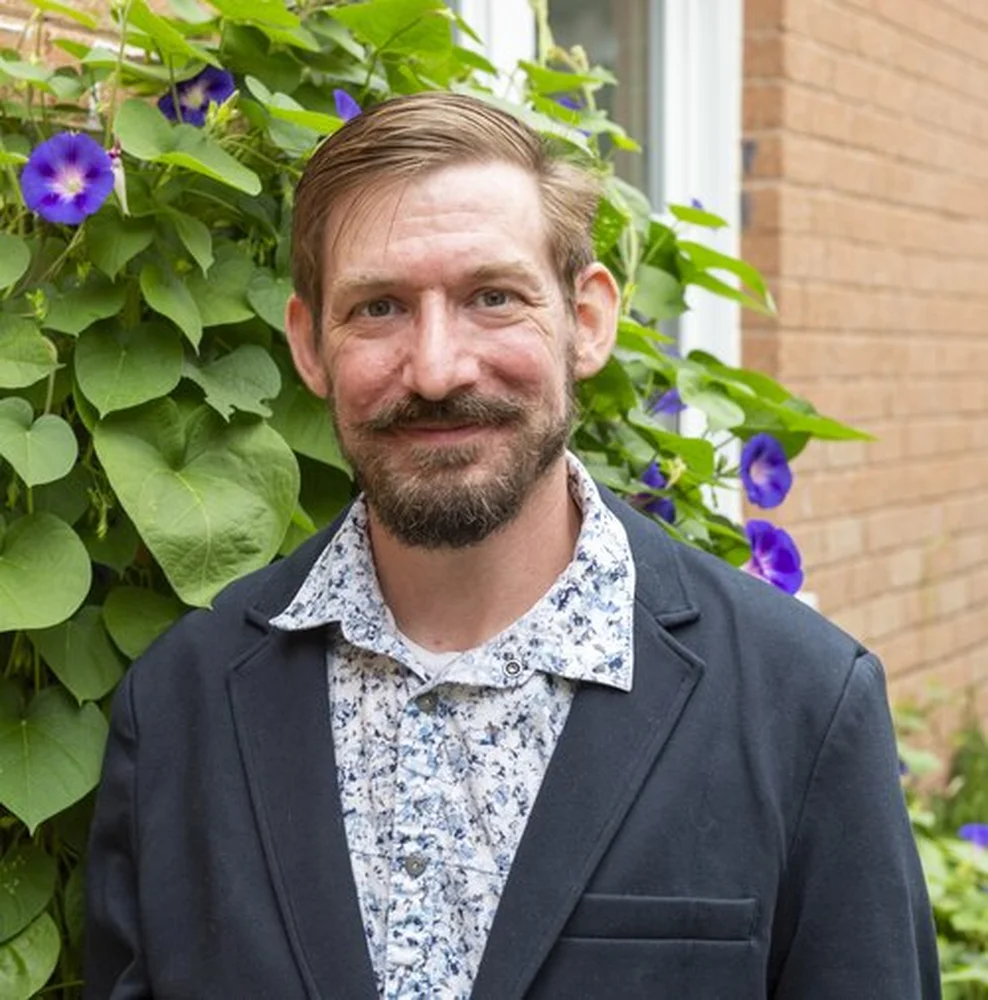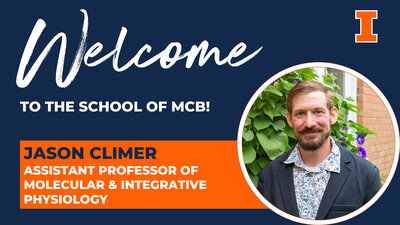
Shared from MCB's News page

The School of Molecular & Cellular Biology and Department of Molecular & Integrative Physiology are pleased to welcome Dr. Jason Climer as an assistant professor of molecular and integrative physiology. We recently spoke with him about his research and teaching interests and how he spends his time outside the lab. He joins us on Nov. 1, 2024, from Northwestern University, where he was a postdoctoral researcher in the Dombeck lab.
Tell us about your lab and your research focus, including how you came to choose or specialize in this area.
The goal of my lab is to understand the neurobiological events that underlie memory. In the memory center of the brain, the hippocampal formation, you find neurons that fire when animals visit particular locations in an environment. I became fascinated about what causes these neurons to fire and how this relates to our ability to remember.
My postdoctoral work focused on two things: mapping how the inputs on these neurons relate their firing, and how the firing of neurons develops over days. I am particularly interested in the latter, because we’ve only just begun to have technical access to these longer timescales and what we’re finding is upending older ideas about how memory ought to work.
In my lab, we will use long term imaging of neurons in mice performing memory tasks in virtual reality worlds to tease apart the events that underlie memory. In particular, I am interested in understanding forgetting, a process that plays a critical part of healthy memory function and something we know little about neurobiologically.
What is especially exciting about this particular area of research, at this time?
Being able to record neurons for days and weeks has shown us that the way we previously thought about memory may be untrue. We used to think that neurons act as a barcode, and that the same neurons should be reactivated when animals remember and re-experienced familiar events. Recent evidence, including my postdoctoral work, suggests that memories are fluid and move between different neurons. We don’t yet understand the impact this “representational drift” has on memory, but it may have to do with our ability to distinguish related memories in time or to learn continuously, things that computer models with more rigid memories have a hard time doing. Alternatively, it could be a window into forgetting, a process that may be important to healthy memory that we understand little about.
My lab is going to dig deeply into what is going on in this phenomenon. We will use longitudinal imaging of calcium and neurotransmitter sensors in combination with novel virtual reality paradigms to examine what causes neural firing patterns to change over time and the relationship between representational drift and memory.
What interested you the most about becoming a faculty member in the School of Molecular and Cellular Biology and the University of Illinois?
The School of MCB and the University of Illinois seems to be a great collaborative environment with strong support for the success of junior faculty. I will be joining a vibrant community of neuroscientists and physiologists that will both expand my horizons and will help me along my scientific journey.
What are your teaching interests?
My teaching interests are to help students better understand the types of data modern neurophysiologists have access to and how to probe that data to learn things about the brain. Analytical skills are a high demand in today’s job market, and understanding where neural data is coming from and what we can (and can’t) learn from it is an essential step for both computational and experimental neuroscientists.
If any students (undergrad or grad) are interested in working in your lab, what’s your advice or how can they get in touch with you?
Please feel free to reach out to me by emailing me at jrclimer@illinois.edu or by filling out the form on our lab web page.
Tell us about someone who made a difference in your life, such as someone who sparked your interest in biology, who encouraged you to pursue a career in academia or challenged your thinking about a topic.
My grandfather was a brilliant electrical engineer who first taught me to think critically and test my ideas, and always encouraged me and was proud of me academically. He emboldened me to be the first of my family to pursue a PhD. Sadly, he was diagnosed with Alzheimer's disease, and I was involved in his end of life care into grad school. Watching him suffer made me want to study the brain and memory, and I became convinced that the best way for me to contribute to this cause was to do basic research into the inner workings of memory.
What do you like to do in your free time?
I love to bike, hike and go camping. My grandfather taught me to garden, which is a seasonal passion of mine. I also love to do BBQs with my smoker.